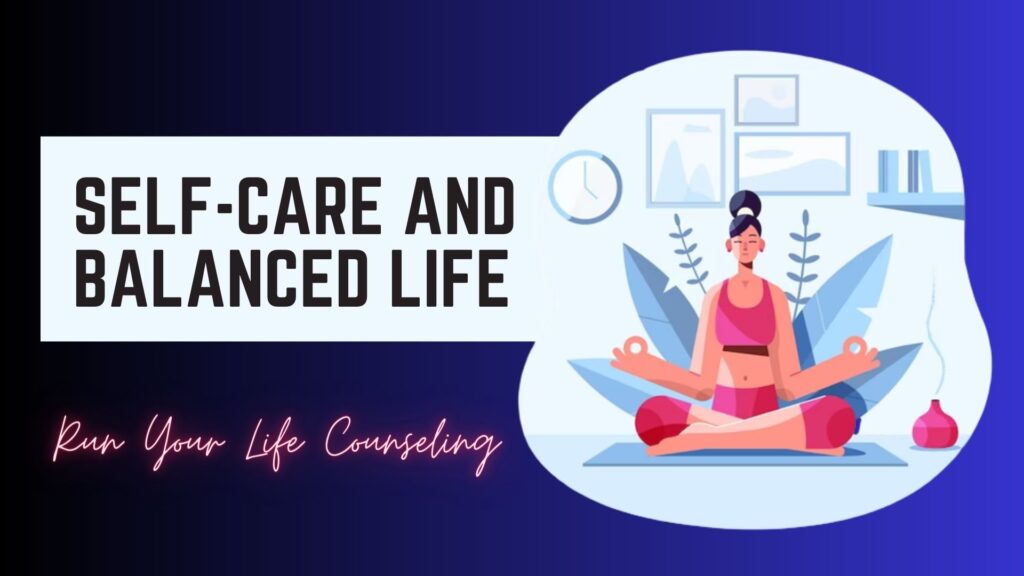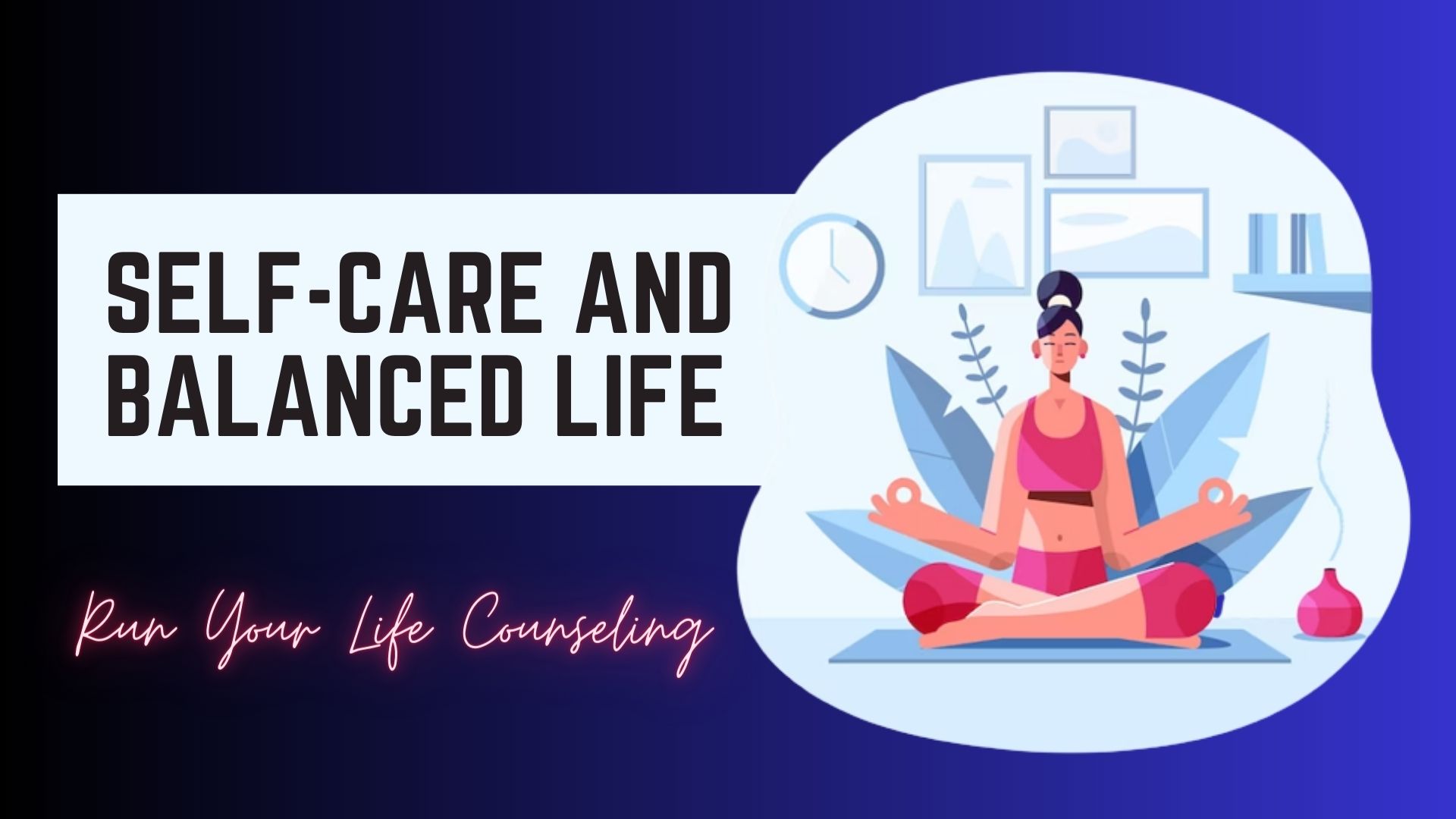Introduction
Self-care is a term that has become increasingly popular over the years. It refers to the actions people take to ensure their mental, emotional, and physical health are well taken care of. However, the idea of self-care may seem daunting, especially for those who have a hectic lifestyle. The good news is that self-care can be practiced in various ways, and it doesn’t have to be time-consuming or expensive. In this article, we will explore how to work on self-care to achieve a balanced life.
Example: Setting aside just 15 minutes each day to meditate or do yoga can help reduce stress and improve overall mental wellness. Additionally, creating a simple nighttime routine that includes a warm bath and reading a book can promote restful sleep and boost physical health.
Identify What Self-Care Means to You
The first step to working on self-care is to understand what it means to you. Everyone’s definition of self-care is different, and it’s important to identify what actions make you feel happy, relaxed, and re-energized. Ask yourself questions such as “What makes me happy?” or “What do I enjoy doing in my free time?”. It could be anything from taking a bubble bath, reading a book, practicing yoga, or spending time with friends and family. Once you have identified what self-care means to you, prioritize it in your life.
Make time for those activities that bring you joy and rejuvenate your mind and body. It may mean setting boundaries with work or social commitments, but taking care of yourself should always be a top priority. Remember, self-care is not selfish; it is necessary for your overall well-being. So, take the time to identify what self-care means to you and make it a part of your daily routine.
Make Self Care a Habit
Self-care is not a one-time event but a habit that needs to be practiced regularly. Making self-care a daily or weekly routine will help you maintain a balanced life. Schedule time in your calendar for self-care activities and stick to them. It’s important to treat self-care as a non-negotiable part of your routine, just like eating or sleeping.
This may mean saying no to certain commitments or delegating tasks to others, but the benefits of self-care are worth it. Not only will it improve your physical and mental health, but it will also enhance your productivity and overall quality of life. Remember, self-care is not a luxury; it is a necessity. So, start small and gradually build self-care habits into your daily routine. Whether it’s taking a relaxing bath, going for a walk, or practicing mindfulness, make self-care a priority and watch as your well-being improves.

Start Small
Starting small is essential when working on self-care. It can be overwhelming to try to incorporate too many self-care activities into your routine. Start with one activity that you enjoy and gradually add more as you go along. This will make self-care less daunting and more achievable.
Set Boundaries
Setting boundaries is an important part of self-care. Learn to say “no” to things that don’t align with your priorities or values. It’s okay to priorities your mental and emotional health over other obligations. Setting boundaries will also help you create more time for self-care activities.
Practice Self Compassion
Self-compassion is about being kind to yourself and treating yourself with the same care and concern that you would show a friend. It involves accepting yourself for who you are, flaws and all. Self-compassion is important because it helps to reduce stress and anxiety, which can have a negative impact on your mental and physical health.
Practicing self-compassion can be difficult for some people, especially those who are used to being self-critical. However, it is important to remember that nobody is perfect and that it is okay to make mistakes. When you are kind to yourself, you are more likely to bounce back from setbacks and challenges. You can start by practicing self-compassion in small ways, such as by giving yourself a compliment or acknowledging your efforts. Over time, you can build up your self-compassion muscle and learn to treat yourself with the kindness and respect that you deserve.
Practice Gratitude
Practicing gratitude is a great way to cultivate self-compassion. Take a few minutes each day to reflect on the things you’re grateful for. This could be anything from having a roof over your head to having a supportive friend or family member.
Focusing on the positives in your life can help shift your mindset towards a more optimistic outlook, which in turn can boost your self-esteem and self-worth. Additionally, expressing gratitude towards others can also deepen your relationships and foster a sense of community and connection. So, whether it’s through journaling, meditation, or simply saying thank you to someone, incorporating gratitude into your daily routine can be a powerful tool for cultivating self-compassion.

Be Mindful of Negative Self Talk
Negative self-talk can be harmful to your mental health. When you catch yourself engaging in negative self-talk, reframe the thought into something positive. For example, instead of saying, “I’m not good enough,” say, “I am capable, and I am doing my best.”
Prioritizing Sleep
Getting enough sleep is crucial for your overall health and well-being. Sleep is when your body repairs and restores itself, so it’s essential to priorities it. Aim for 7-9 hours of sleep per night and create a bedtime routine that helps you wind down and relax.
Some tips for creating a bedtime routine include turning off electronic devices at least an hour before bed, reading a book, or practicing relaxation techniques like deep breathing or meditation. Additionally, try to maintain a consistent sleep schedule, even on weekends, to help regulate your body’s internal clock. By prioritizing sleep, you can improve your mood, cognitive function, and physical health. So, make sure to give yourself the time and space to get the rest you need.
Create a Sleep-Conducive Environment
Creating a sleep-conducive environment is important to help you get a good night’s sleep. This could involve making sure your bedroom is cool and dark, investing in comfortable bedding and pillows, and eliminating any noise or distractions.
Limit Screen Time
Excessive screen time can disrupt your sleep patterns, so it’s important to limit your exposure to electronic devices before bedtime. Try to avoid using electronic devices at least an hour before bed and instead engage in relaxing activities such as reading or meditating.
Practice mindfulness
Mindfulness involves being present and fully engaged in the present moment. It can help reduce stress and anxiety and promote overall well-being. There are various ways to practice mindfulness, such as meditation, deep breathing exercises, or mindful movement practices like yoga or tai chi.
Incorporating mindfulness into your bedtime routine can be particularly beneficial for improving sleep quality. Before you go to bed, try a guided meditation or some gentle yoga stretches to help calm your mind and relax your body. Practicing mindfulness regularly can also help you develop a deeper sense of awareness and appreciation for the present moment, which can lead to a more peaceful and fulfilling life overall.
Mindful Breathing
Mindful breathing involves paying attention to your breath and focusing on the present moment. Take a few deep breaths and focus on the sensation of air moving in and out of your body. This simple exercise can help calm your mind and reduce stress.
Mindful Movement
Mindful movement practices like yoga or tai chi can help improve flexibility, strength, and balance while also promoting mindfulness. These practices involve moving the body in a slow, controlled manner while paying attention to the sensations of the body and breath.
Connect with Others
Connecting with others is an important aspect of self-care. Humans are social creatures, and having positive relationships can improve our mental and emotional well-being. Take time to connect with friends and family members regularly, even if it’s just a quick phone call or text message. Additionally, consider joining a social group or club that aligns with your interests. This can provide a sense of community and belonging, as well as opportunities for new experiences and friendships. Volunteering is another way to connect with others while also giving back to your community. Whatever method you choose, make sure to prioritize building and maintaining meaningful relationships in your life.
Join a Group or Club
Joining a group or club that aligns with your interests is a great way to connect with like-minded individuals. It could be anything from a book club to a hiking group. Being part of a community can provide a sense of belonging and improve
Volunteer
Volunteering is another way to connect with others while also making a positive impact in your community. It can help improve your self-esteem and provide a sense of purpose and fulfillment.
Conclusion
In conclusion, working on self-care is essential to achieving a balanced life. It involves identifying what self-care means to you, making self-care a habit, practicing self-compassion, prioritizing sleep, practicing mindfulness, and connecting with others. Remember, self-care is not a one-time event but a habit that needs to be practiced regularly. By prioritizing self-care, you can improve your mental, emotional, and physical well-being and achieve a more balanced life.




